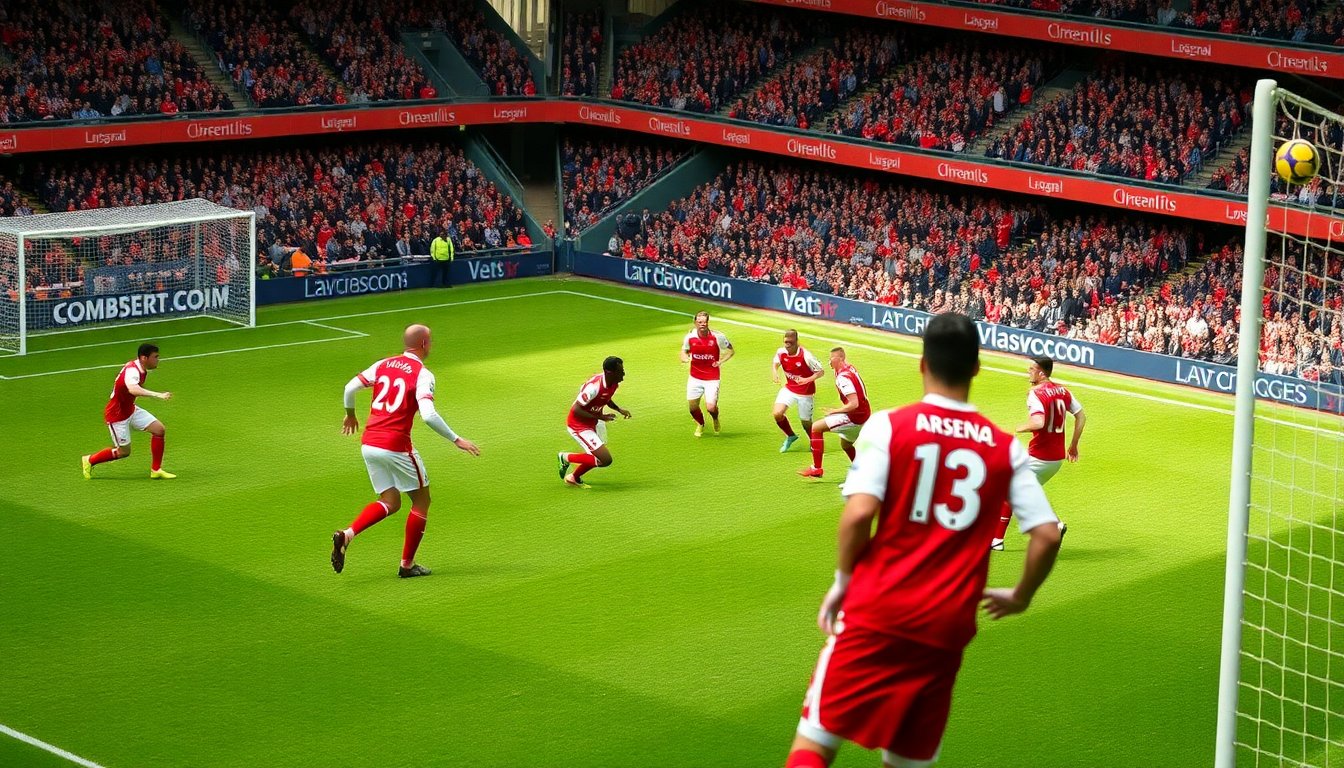Table of Contents
As the Premier League continues, Arsenal Football Club has emerged as a formidable force, primarily due to its skill in converting set pieces into crucial goals. Under the leadership of manager Mikel Arteta, Arsenal has turned traditional dead-ball situations into a significant advantage. This tactical evolution not only demonstrates the team’s creativity but also indicates a shift in the dynamics of modern football.
The rise of Arsenal’s set piece strategy
Historically, set plays were often viewed as basic tactics, typically utilized by teams that struggled in the league. However, Arsenal has completely transformed this perception. This season, the Gunners have scored an impressive ten goals from set pieces, making them the leading team in this aspect of the game. Arteta prioritizes **maximizing opportunities** during dead-ball situations, underscoring their importance within his tactical strategy.
Arteta’s background and tactical insights
The foundation of Arsenal’s success in set pieces can be traced back to Mikel Arteta’s playing days. His experience at clubs such as Paris Saint-Germain and Everton, along with his time at Manchester City under Pep Guardiola, refined his understanding of the intricacies involved in dead-ball scenarios. Arteta emphasized, “We need to assign the value that these situations deserve,” underscoring his commitment to excellence in this domain.
Through the use of complex routines, strategic player positioning, and precise delivery, Arsenal has effectively capitalized on defensive lapses from opponents. This meticulous attention to detail was particularly evident in their recent match against Fulham, where a well-executed corner kick resulted in a pivotal goal, showcasing their ability to penetrate tightly organized defenses.
Challenges and squad dynamics
Arsenal’s recent success is overshadowed by significant challenges that may disrupt their tactical coherence. The injury of key defender Gabriel Magalhães raises serious concerns about the team’s defensive stability and effectiveness during set pieces. Gabriel’s role is crucial; his leadership and aerial prowess have played a vital part in Arsenal’s strong defensive record this season. With only three goals conceded so far, his absence could further complicate the team’s performance.
Impact of injuries on tactical execution
In addition to Gabriel, players such as Martin Ødegaard and Gabriel Jesus are also unavailable due to injury, challenging the squad’s depth. Manager Mikel Arteta has addressed the situation, saying, “They are all progressing really well, but none are yet in contention.” This scenario may necessitate tactical changes, potentially shifting the emphasis from attacking creativity to defensive stability, particularly against teams like Crystal Palace, which are recognized for their physical play and effectiveness in set pieces.
Critiques and the broader implications
Arsenal’s tactical approach sparks debate
Arsenal’s focus on set pieces has drawn mixed reactions within the football community. Critics, including former player Jamie O’Hara, argue that Arsenal’s tactics resemble less sophisticated styles of play often seen in non-league football. O’Hara claims this trend is detrimental to the league, as many teams adopt similar strategies, resulting in a less dynamic style of play.
In contrast, pundits like Jamie Carragher highlight Arsenal’s tactical acumen as a crucial element of their title ambitions. Carragher asserts that Arsenal is well-positioned to thrive in the current Premier League environment, given their effective scoring and defending during set plays.
Arsenal’s strategy in the face of injuries
As the next match approaches, Arsenal fans and competitors will closely watch how the team adapts to injuries while maintaining its effective set piece strategy. The ability to create scoring opportunities from corners and free kicks is crucial in their pursuit of the Premier League title.
The importance of set pieces in modern football
Arsenal’s focus on set pieces reflects a significant trend in contemporary football, where even minor details can affect match outcomes. Arteta’s dedication to innovation and meticulous preparation highlights a tactical approach that enhances Arsenal’s performance. Their set piece execution has become an essential element of the team’s identity.


